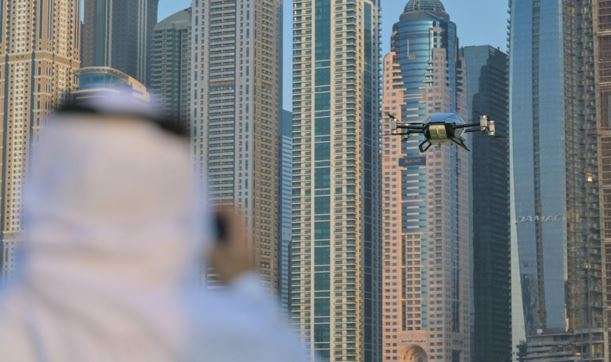The Public Transportation in UAE- once overshadowed by private vehicles, now stands as a cutting-edge, efficient, and eco-friendly network. From buses to taxis, water taxis to the renowned Dubai Metro, the UAE offers a range of transportation options that cater to all pockets and lifestyles. In this comprehensive guide, we will explore the various modes of public transportation in the UAE, including their features, accessibility, safety tips, and more.
Public Transportation in the UAE

The public transportation system in the UAE, particularly in the three major hubs of Dubai, Abu Dhabi, and Sharjah, is comparable to, if not better than, the highest standards found elsewhere in Asia and Europe. With its efficient and reliable network, public transportation in the UAE has become a preferred choice for residents and tourists alike. Whether you’re commuting within the city or traveling between emirates, the UAE’s public transportation system offers a convenient and cost-effective way to get around.
Public Transportation in Dubai
- In Dubai, the Roads and Transport Authority (RTA) governs the majority of public transportation services, including buses, taxis, water taxis, and the Dubai Metro. The Dubai Metro, in particular, has gained international recognition for its world-class infrastructure and technological advancements. It is the only emirate with a transport card, known as the Nol card, which allows seamless payments across various modes of public transport.
- The Dubai Metro, inaugurated in 2009, is the world’s fourth-largest automated metro system and spans nearly 90 kilometers with 49 stations. It operates two lines, the Red Line and the Green Line, with a third line currently under construction. The metro runs seven days a week, with trains operating from 5:00 AM to midnight on weekdays and extended hours on weekends.
- To access the Dubai Metro and other public transport services in Dubai, obtaining a Nol card is essential. Available at metro stations, the Nol card offers different types, including gold (first-class), silver (regular), blue (discounted for students and senior citizens), and red (limited use for tourists).
Public Transportation in Other Emirates

While Dubai boasts an extensive public transportation network, the smaller emirates of Fujairah, Umm Al Quwain, and Ras Al Khaimah have a more limited offering. However, buses and taxis connect these emirates to the larger ones, providing affordable mobility options within these areas. Abu Dhabi, Sharjah, and Ajman also have their own transport cards, primarily for bus services.
To access detailed information about routes, timetables, and helplines for public buses, the Integrated Transport Centre in Abu Dhabi, Roads and Transport Authority in Dubai, Sharjah Roads and Transport Authority, Public Transport Corporation in Ajman, and RAK Transport Authority in Ras Al Khaimah regulate and provide official websites.
Trains in the United Arab Emirates

The UAE currently has one operational train system, the Dubai Metro. Although plans for train systems in Abu Dhabi and Sharjah are in the works, the Dubai Metro remains the primary rail transportation option. The metro’s impressive infrastructure, spanning two lines and 49 stations, makes it an efficient mode of transportation for residents and tourists alike.
- The Red Line, passing through 29 stations, and the Green Line, passing through 20 stations, operate from Monday to Thursday between 5:00 AM and midnight, with extended hours on Fridays and Saturdays. The metro offers frequent services, with trains arriving every 4 to 7 minutes during peak hours.
- To access Dubai Metro services, passengers must possess a Nol card. The fare structure varies depending on the type of card and the distance traveled, with fares ranging from AED 3 to AED 40. It is crucial to ensure that the Nol card has sufficient balance to avoid fines.
Buses in the UAE

Buses in the UAE provide a safe, efficient, and clean mode of transportation, particularly in Dubai and Abu Dhabi. Equipped with air-conditioning and driven by trained drivers, buses offer a comfortable experience for commuters. In Dubai and Abu Dhabi, the transport card system, such as the Nol card and Hafilat smart card, respectively, facilitates easy payments and seamless transfers across different modes of public transport.
- Dubai, Abu Dhabi, Sharjah, and Ajman all have well-organized bus systems. Public buses in these emirates offer disability-friendly features, audio-visual aids, CCTV monitoring, ease of payments, and segregated sections for women and families. However, in the smaller emirates like Fujairah and Umm Al Quwain, public buses are less frequent and organized. Travelers often rely on private vehicles, taxis, or hotel coaches for transportation within these emirates.
- The fare charges for buses typically start at AED 2 for local travel and can go up to approximately AED 8. For inter-emirate travel, the fares are around AED 25. Notably, when using a bus to reach a metro station, the bus travel is free after tapping the Nol card at the metro.
- To plan bus journeys, access to online resources, such as official websites and mobile apps, is available. The RTA app for Dubai and the Darb app for Abu Dhabi provide comprehensive information on routes, timetables, and fares.
Long-Distance Coaches in the UAE

Despite the UAE’s relatively small size, long-distance coaches offer a convenient way to travel between emirates. These coaches are fully air-conditioned, equipped with comfortable seating, and make occasional stops for passengers to rest and refresh. Central bus stations in each emirate serve as departure points for long-distance coaches.
- Traveling from one emirate to another, such as Abu Dhabi to Fujairah, typically takes a maximum of five hours due to the UAE’s excellent road infrastructure. The fares for long-distance coach travel start at AED 20, making it an affordable option for inter-emirate journeys.
- It is crucial to ensure that the travel card, such as the Nol card, has sufficient balance when using long-distance coaches, as some stations may not offer top-up services. Passengers can purchase tickets through cash or card from ticket machines available at the stations.
Taxis in the UAE

Taxis remain a popular mode of public transportation in the UAE, offering convenience and reliability. In Dubai, Abu Dhabi, and Sharjah, the respective departments of transport operate the taxi services. These taxis are equipped with air-conditioning and driven by professional drivers who are proficient in English and Arabic.
- The availability of taxis is extensive, with 24-hour services in Dubai, Abu Dhabi, and Sharjah. Taxi fares vary between emirates, with Dubai having higher price tags compared to other regions. Toyota, Hyundai, and Nissan are popular car brands for taxis, ensuring a comfortable and safe journey for passengers.
- Payment methods for taxis include both cash and card, with many taxis accepting card payments. Tipping the driver is appreciated, but not mandatory. Female passengers traveling alone or with children can request taxis driven by female chauffeurs, ensuring a safe and comfortable experience.
Car-Sharing Services and Uber in the UAE

App-based taxi services, such as Uber and Careem, operate in the UAE, providing an alternative to traditional taxis. These services are available in Dubai, Abu Dhabi, Sharjah, and Ajman, offering convenient transportation options at competitive fares. While fares may fluctuate during peak hours or special occasions, the overall fare structure is similar to that of public taxis.
- Uber and Careem primarily use luxurious cars, such as Lexus, providing passengers with a comfortable and upscale travel experience. All drivers are fluent in English, ensuring efficient communication during the journey.
- It is important to note that accepting rides from unauthorized drivers in exchange for money is illegal and could result in fines. Passengers should only use authorized taxi services or reputable app-based services.
Other Methods of Public Transportation in the UAE

In addition to traditional modes of transportation, the RTA in Dubai offers various alternative transport options to enhance mobility within the city. These options include water taxis, Dubai Ferry services, Dubai Tram, abras (traditional boats), and bicycle rentals.
- Water taxis operate along the waterways, connecting 44 stations and accommodating up to 10 passengers per taxi. Dubai Ferry services provide transportation within the emirate and also link it to Sharjah. The Dubai Tram runs along a 14.5-kilometer stretch with 11 stations, offering a convenient way to travel between Dubai Marina and the Palm Jumeirah/Al Sufouh areas.
- Abras, traditional wooden boats powered by motors, provide a unique experience for crossing the Dubai Creek. With fares as low as AED 1, they offer an affordable and scenic way to travel between shores. Additionally, bicycle rentals are available through private companies, with bicycle parking facilities available at most Dubai Metro stations.
Disability Access for Public Transportation

The UAE government prioritizes accessibility for people of determination, providing special facilities and support for individuals with disabilities. The Ministry of Community Development offers a special ID card for people of determination, enabling them to access various benefits, including free or subsidized travel.
Public transportation in the UAE, particularly in Dubai, is designed to accommodate individuals with disabilities. The Dubai Metro, for instance, offers tactile floor paths for the visually impaired, CCTV surveillance for the hearing impaired, designated spaces for wheelchairs, and allocated seating. Dubai Taxi Corporation operates a fleet of vehicles specifically designed for disabled individuals, providing wheelchair accessibility and trained drivers.
For more information and to apply for the special ID card, individuals can contact their respective emirate’s transport authority or visit the UAE government website for people with special needs.
Safety Tips for Public Transportation in the UAE

The UAE is renowned for its safety, and this extends to its public transportation network. CCTV surveillance is present in all public transport systems, ensuring the safety and security of passengers. However, it is still important to follow certain guidelines to ensure a smooth and secure journey:
- When traveling alone at night, it’s advisable for women to avoid engaging in prolonged conversations with taxi drivers.
- Women and children should utilize the designated coaches on the metro and public buses for enhanced safety.
- Ensure that your transport card, such as the Nol card, has sufficient balance to avoid fines.
- Eating or drinking is not permitted on public transport, and carrying cooked food may cause discomfort to fellow passengers.
- Alcohol is not allowed on board public transport, so it’s advisable to store duty-free purchases in the trunk with other luggage.
- Respect the designated compartments on public transport. Men should avoid entering the ladies’ compartment, even when accompanied by family members.
Making Complaints about Public Transportation in the UAE
You can make a call to the RTA complaint centre at 8009090 and explain your problem to the representative. The RTA call centre agent will update ypu about the RTA complaint status. Usually, it takes around seven working days to resolve the issue. Within seven working days, you will receive a call from the agent.
If you have a complaint about public transportation in the UAE, you can contact the relevant transport authority. Here are some links to the complaint pages of the major transport authorities:
- Dubai Roads and Transport Authority (RTA): https://www.rta.ae/wps/portal/rta/ae/home/about-rta/contact-us/complaints
- Abu Dhabi Department of Transport (DoT): https://dot.abudhabi.ae/en/info/contact-us/complaints
- Sharjah Roads and Transport Authority (SRTA): https://www.srta.gov.ae/en/contact-us/complaints
- Ajman Public Transport Corporation: http://www.ajmanptc.ae/ContactUs.aspx
- Ras Al Khaimah Transport Authority: https://www.raktransport.ae/en/contact-us/complaints



